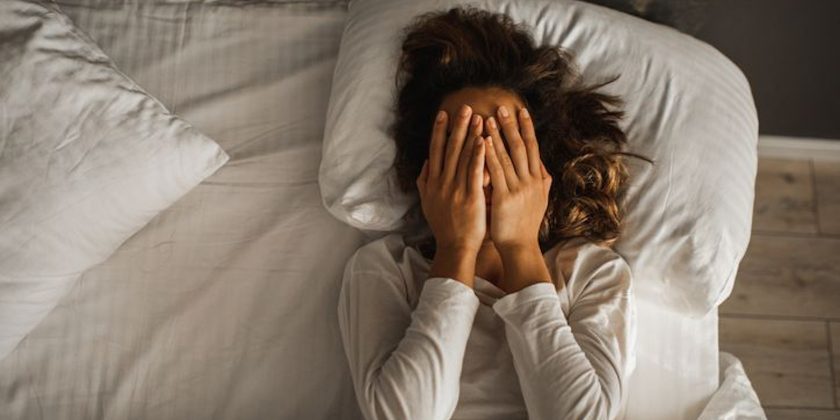Snapping at your flatmate or partner after a bad night’s sleep? You need to know about this new research on the link between sleep and empathy.
Waking up after a bad night’s sleep, you probably feel groggy, tired and maybe even unwell. But above all, a night of tossing and turning usually means you wake up on the wrong side of the bed and feeling irritable.
It can be difficult to deal with other people when you’re tired let alone be able to think about going out of your way for them. And it turns out there’s a scientific reason you feel particularly selfish when you’re tired, according to a new study by researchers at the University of California.
You may also like
Can’t fall asleep before midnight? “I tried sleep therapy to help me drift off earlier”
The report found that as well as being associated with increased risk of cardiovascular disease, depression, diabetes, hypertension and overall mortality, a lack of sleep also “impairs our basic social conscience”, which makes us less likely to want to help other people.
This conclusion was based on a number of research methods, including looking at how people’s behaviour changed after daylight saving hours were implemented, when most people lose an hour of sleep and many people’s circadian rhythms are disrupted by the changes in daylight. According to the study, charitable giving decreased by 10% in the week after daylight saving hours were implemented in certain states in the US. That same drop wasn’t seen when people gained an hour as clocks changed in the autumn, nor in states that do not change their clocks.
Sleep and mental health are intrinsically linked, as previous research has discovered, but this new study has proven that tiredness can also affect the area of our brain directly linked to social interaction. After taking images of 24 participants’ brains after eight hours sleep and a night of no sleep, researchers found that the areas of the brain that are engaged when we empathise with others or try to understand other people’s wants and needs were less active after a sleepless night.
Eti Ben Simon, one of the researchers working on the study, explained that the reason these responses are impaired by sleep deprivation is because the area of our brain linked to social interaction doesn’t function properly when we’re tired.
Matthew Walker, professor of psychology and the author of Why We Sleep, who also worked on the study, noted that: “Looking at the big picture, we’re starting to see that a lack of sleep results in a quite asocial and, from a helping perspective, anti-social individual, which has manifold consequences to how we live together as a social species. A lack of sleep makes people less empathetic, less generous, more socially withdrawn, and it’s infectious – there is contagion of loneliness.”
The study notes that in developed countries, more than half of all people report getting insufficient sleep during the work week, which could explain why you might be seeing so many unfriendly faces on your morning commute.
You may also like
Can’t sleep? Here’s why your menstrual cycle could be to blame
Walker said that this research proves that sleep is not only important on a personal level but from a societal perspective too: “Sleep, it turns out, is an incredible lubricant to prosocial, connected, empathic, kind and generous human behaviour. In these divisive times, if there was ever a need for a strong, prosocial lubricant to enable the very best version of ourselves within society, now seems to be it.”
Ultimately, the study proves just how important a good night’s sleep is and why we need to let go of the outdated idea that resting is lazy. In fact, spending an extra hour in bed could be the least selfish thing you do all day.
Images: Getty
Source: Read Full Article
